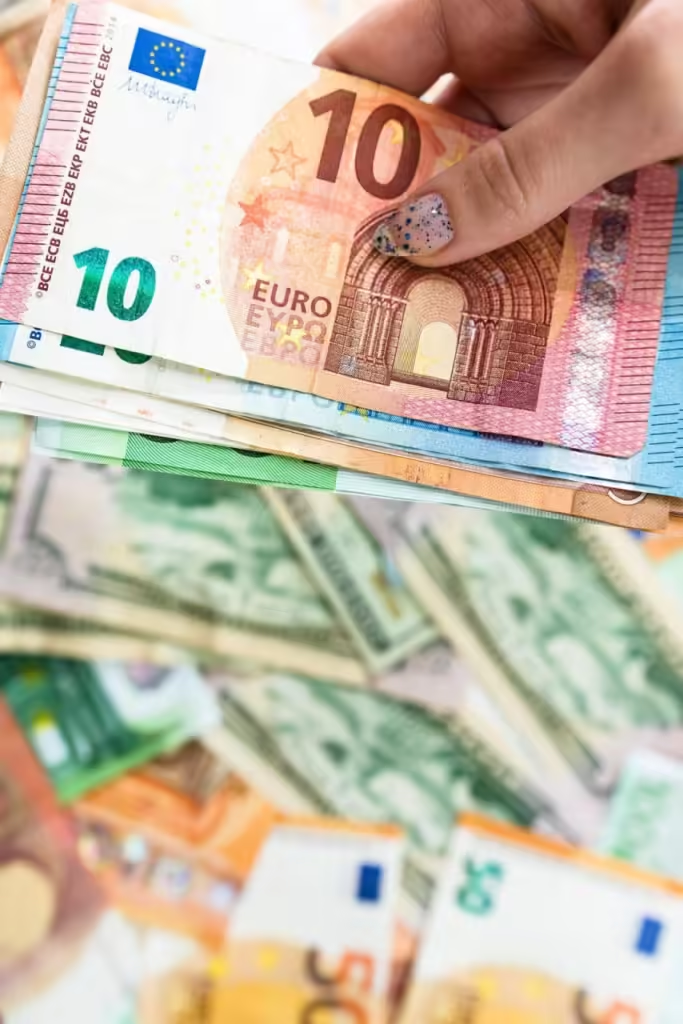Last Updated on
Vienna, the charming capital of Austria, is known for its rich history, stunning architecture, and delectable cuisine. But as you stroll through its picturesque streets and indulge in a slice of Sachertorte or enjoy a cozy dinner at a traditional heuriger, there’s an unspoken question that often lingers: how much should I tip?
Tipping culture in Vienna can be both intriguing and confusing for visitors. It reflects not only local customs but also the changing dynamics of service expectations. So let’s dive into the nuances of tipping in this beautiful city—unraveling its history, understanding who to reward for their hard work, and exploring alternatives if you’re unsure about leaving extra cash on the table.
The History of Tipping in Austria
Tipping in Austria has roots that stretch back centuries. Originally, it was linked to the feudal system where serfs would offer small tokens of gratitude to their lords and masters for favors received.
As society evolved, so did these customs. The practice transitioned into a more structured form during the 19th century with the rise of hospitality sectors like restaurants and cafes. It became common for patrons to express appreciation for good service through gratuities.
By the 20th century, tipping had solidified into everyday life in Vienna and across Austria. Diners would leave coins on tables or round up bills as a sign of goodwill.
Today, while tipping remains customary, Austrians have developed a unique perspective on it—viewing it as an acknowledgment rather than an obligation. This cultural nuance adds depth to how visitors experience dining out in this charming city.
Understanding Tipping Customs in Vienna
In Vienna, tipping is not just a gesture; it’s woven into the fabric of social interactions. The locals often say that service charges are included in your bill, which can make things a bit confusing for newcomers.
Typically, rounding up the total or adding around 5-10% is customary. For example, if your meal costs €30, you might leave €32 or €33 on the table. It’s simple and appreciated.
 In cafés and restaurants, it’s common to hand cash directly to the server when paying. This personal touch shows respect for their work and effort.
In cafés and restaurants, it’s common to hand cash directly to the server when paying. This personal touch shows respect for their work and effort.
For taxi drivers, rounding up the fare is also standard practice. If your ride costs €18, handing over a €20 note would be perfectly acceptable—and polite.
Understanding these nuances helps bridge cultural gaps and enhances your experience while exploring this beautiful city.
Who to Tip and How Much?
When navigating the tipping culture in Vienna, knowing who to tip is essential. Start with your server at restaurants, as they often rely on tips for supplementary income.
For casual dining, rounding up the bill to a euro or two suffices. In more upscale establishments, consider leaving around 10-15% of the total amount.
 Taxi drivers also appreciate a small gesture; rounding up to the nearest euro works well here too. If you’ve hired a guide for tours, tipping between €5 and €10 shows your gratitude.
Taxi drivers also appreciate a small gesture; rounding up to the nearest euro works well here too. If you’ve hired a guide for tours, tipping between €5 and €10 shows your gratitude.
Don’t forget hotel staff; a few euros per night for housekeeping can go a long way in expressing appreciation for their hard work.
While these amounts are guidelines, feel free to adjust based on service quality and personal experiences—it’s all about showing gratitude in your own way!
Alternatives to Tipping
If you prefer to skip traditional tipping, there are alternatives that can express appreciation. Consider leaving a thoughtful note with your compliments instead of cash. Many service workers appreciate personal recognition.
Another option is to share your experience online. A glowing review on platforms like TripAdvisor or Google can significantly impact a business’s reputation and attract more customers.
You might also opt for gift-giving in certain situations. Bringing small tokens from your home country, such as local snacks or souvenirs, can be a delightful surprise for staff who went above and beyond.
Participating in community initiatives or supporting local charities shows gratitude that extends beyond individual interactions. Engaging with the local economy fosters goodwill without the need for direct financial tips.
Controversies Surrounding Tipping in Vienna
Tipping in Vienna isn’t without its debates. Some locals argue that service staff should receive fair wages instead of relying on tips. They believe this would lead to a more equitable work environment.
On the other hand, tourists often feel pressured to tip out of habit or misunderstanding. Many visitors come from cultures where tipping is expected and may inadvertently reinforce an uncomfortable dynamic.
There are also discussions about what constitutes an appropriate amount to tip. The differences in cultural expectations can create confusion for both servers and patrons alike.
Additionally, some restaurants have adopted no-tipping policies, raising eyebrows among traditionalists who see tipping as a gesture of gratitude. This shift has sparked conversations about the evolving nature of hospitality and customer service in modern Vienna.
Tipping practices in Austria
Tipping practices in Austria are relatively consistent across the country, though there can be slight variations depending on the region or the specific service. Here’s an overview of tipping culture in Austria:
Restaurants and Cafés
- Service Charge: Like in Vienna, a service charge is often included in the bill across Austria, usually around 10-15%. However, it’s common to leave a small additional tip.
- How Much?: Generally, rounding up to the nearest euro or adding about 5-10% is standard. In more rural areas or smaller towns, rounding up might be more common than leaving a percentage-based tip.
- How to Tip: You can indicate the total amount you want to pay, including the tip, when handing over cash or paying by card.
Bars and Cafés
- Modest Tips: Tipping in bars is generally modest. Rounding up to the nearest euro or leaving a euro or two is common practice across Austria.
- Regional Variations: In rural or Alpine areas, where the culture might be more laid-back, the tipping amounts tend to be smaller.
Taxis
- Rounding Up: It’s customary to round up the fare to the nearest euro, similar to Vienna. A 5-10% tip is appreciated for good service.
- Rural Areas: In more rural parts of Austria, the practice of tipping taxi drivers might be more relaxed, with a simple round-up being sufficient.
Hotels
- Porters: €1-2 per bag is the norm across the country.
- Housekeeping: A tip of €1-2 per day is appreciated, particularly in higher-end hotels or during longer stays.
- Concierge: Tipping €5-10 for exceptional service is common in upscale hotels, particularly in tourist-heavy areas like Salzburg or Innsbruck.
Guided Tours
- Tour Guides: For guided tours, especially in tourist areas like Salzburg, Hallstatt, or the Tyrol region, tipping €5-10 per person is customary.
- Smaller Towns: In smaller towns or more rural settings, tips might be lower or less expected.
Other Services
- Hairdressers and Salons: Tipping around 5-10% of the total bill is standard, just like in Vienna.
- Spas and Wellness Centers: In resorts or wellness centers, particularly in the Alps, it’s customary to tip therapists or attendants around 5-10%.
General Tips
- Modesty: Austrians generally view tipping as a sign of appreciation rather than an obligation. Tips tend to be more modest than in countries like the U.S. or the UK.
- Rounding Up: In smaller towns or rural areas, simply rounding up to the nearest euro is often sufficient and appreciated.
- Politeness: Austrians value politeness and respect, so a friendly interaction can sometimes be as appreciated as the tip itself.
Conclusion: To Tip or Not to Tip?
Tipping culture in Vienna can seem a bit complex at first. For many visitors, it might feel like walking through a maze of customs and expectations. While tipping is appreciated, it’s not as obligatory as in some other countries.
 A good rule of thumb is to round up your bill or leave around 5-10%. This simple gesture shows gratitude without feeling excessive.
A good rule of thumb is to round up your bill or leave around 5-10%. This simple gesture shows gratitude without feeling excessive.
Understanding the nuances makes navigating tips easier. It’s important to remember that staff are often paid fairly well, which plays into the broader context of Austrian hospitality.
If you’re unsure about whether to tip or how much to give, don’t hesitate to ask locals for guidance. They’ll appreciate your effort to respect their traditions while also sharing insights on their way of life.
As you explore Vienna’s charming streets and indulge in its rich culinary offerings, keep this cultural aspect in mind. Tipping may enhance your experience and deepen your connection with the city’s vibrant service industry but ultimately depends on personal comfort levels and experiences during your visit.

Andrea is a travel writer who splits her time between Austria and Croatia, drawing from both to tell grounded, engaging stories about culture, food, and local life. With a sharp eye for detail and a no-nonsense style, she covers everything from alpine villages and Viennese cafés to Adriatic islands and Dalmatian coastlines. Her work captures the rhythms of everyday life in both countries, beyond the tourist traps, always focused on what’s real, interesting, and worth experiencing. When she’s not writing, she’s hiking, swimming, or hunting down the best coffee in town.

